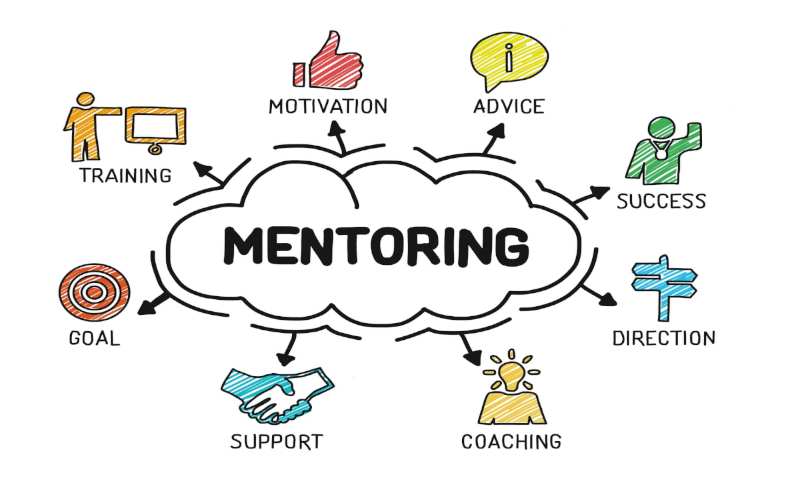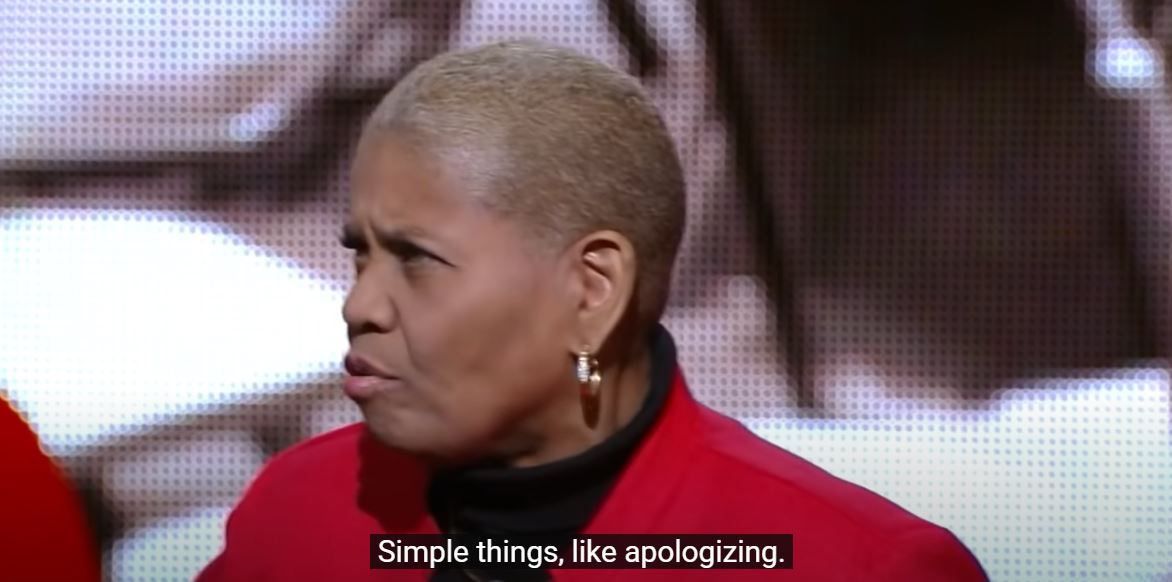
Mpwapwa
INTRODUCTION Mentorship can be a valuable tool for professional development for college math tutors. By working closely with an experienced mentor, tutors can gain insights into effective teaching strategies, learn how to manage challenging student interactions, and receive feedback on their own teaching practices. Additionally, mentorship can provide opportunities for tutors to network with other professionals in their field and gain exposure to new ideas and approaches. Overall, mentorship can help college math tutors grow both personally and professionally.Here are some steps to follow for effective mentorship of mathematics tutors:1. Establish clear goals: Work with the tutor to identify specific goals for the mentorship program, such as improving teaching strategies or enhancing student engagement.2. Build a relationship: Invest time in building a positive relationship with the tutor. This can include regular check-ins, open communication, and active listening.3. Provide guidance and feedback: Offer constructive feedback and guidance on teaching practices, lesson planning, and student engagement. Encourage the tutor to reflect on their own teaching practices and identify areas for improvement.4. Encourage self-reflection: Encourage the tutor to reflect on their own teaching practices and identify areas for improvement. Provide opportunities for the tutor to observe other experienced tutors or teachers to gain new insights.5. Support professional growth: Provide opportunities for the tutor to attend professional development workshops or conferences. Encourage them to network with other professionals in their field and share experiences and ideas.6. Evaluate progress: Regularly evaluate progress towards the established goals and adjust the mentorship program as needed. Celebrate successes and provide support as needed to overcome challenges. 7. By following these steps, you can create an effective mentorship program that supports the growth and development of mathematics tutors.
More detailsPublished - Sat, 15 Jul 2023

Lesson study College based professional development
Lesson study is a collaborative and iterative process in which a group of teachers work together to plan, observe, analyze, and refine a single lesson. The goal is to improve student learning by refining teaching practices through ongoing reflection and inquiry. This process typically involves a team of teachers observing one another's instruction, collecting data on student learning, and reflecting on the effectiveness of their teaching strategies.1. To conduct a lesson study, you can follow these general steps:1. Form a team of teachers who are interested in working collaboratively to improve teaching practices.2. Choose a lesson or unit of study to focus on.3. Plan the lesson together, using research-based strategies and considering the needs of all students.4. One teacher teaches the lesson while the others observe and collect data on student learning.5 The team meets to analyze the data and reflect on the effectiveness of the lesson.6. Based on their analysis, the team revises and refines the lesson plan.7. The revised lesson is taught again by one of the teachers, and the process repeats until the team is satisfied with the results.Throughout the process, it's important to maintain open communication and a spirit of collaboration among all team members. The goal is to improve teaching practices and student learning through ongoing reflection and inquiry.
More detailsPublished - Sat, 15 Jul 2023

Created by - Math Centre
Rita Pierson: Every kid needs a champion (TED in May 2013)
Rita Pierson: Every kid needs a championI have spent my entire life either at the schoolhouse, on the way to the schoolhouse, or talking about what happens in the schoolhouse. Both my parents were educators, my maternal grandparents were educators, and for the past 40 years I've done the same thing. And so, needless to say, over those years I've had a chance to look at education reform from a lot of perspectives. Some of those reforms have been good. Some of them have been not so good. And we know why kids drop out. We know why kids don't learn. It's either poverty, low attendance, negative peer influences. We know why. But one of the things that we never discuss or we rarely discuss is the value and importance of human connection, relationships. James Comer says that no significant learning can occur without a significant relationship. George Washington Carver says all learning is understanding relationships. Everyone in this room has been affected by a teacher or an adult. For years, I have watched people teach. I have looked at the best and I've look at some of the worst. A colleague said to me one time, "They don't pay me to like the kids. They pay me to teach a lesson. The kids should learn it. I should teach it. They should learn it. Case closed." Well, I said to her, "You know, kids don't learn from people they don't like." (Laughter) (Applause) She said, "That's just a bunch of hooey." And I said to her, "Well, your year is going to be long and arduous, dear." Needless to say it was. Some people think that you can either have it in you to build a relationship or you don't. I think Stephen Covey had the right idea. He said you ought to just throw in a few simple things, like seeking first to understand as opposed to being understood, simple things like apologizing. You ever thought about that? Tell a kid you're sorry, they're in shock. I taught a lesson once on ratios. I'm not real good with math, but I was working on it. And I got back and looked at that teacher edition. I'd taught the whole lesson wrong. (Laughter) So I came back to class the next day, and I said, "Look, guys, I need to apologize. I taught the whole lesson wrong. I'm so sorry." They said, "That's okay, Ms. Pierson. You were so excited, we just let you go." (Laughter) (Applause) I have had classes that were so low, so academically deficient that I cried. I wondered, how am I going to take this group in nine months from where they are to where they need to be? And it was difficult. It was awfully hard. How do I raise the self-esteem of a child and his academic achievement at the same time? One year I came up with a bright idea. I told all my students, "You were chosen to be in my class because I am the best teacher and you are the best students, they put us all together so we could show everybody else how to do it." One of the students said, "Really?" (Laughter) I said, "Really. We have to show the other classes how to do it, so when we walk down the hall, people will notice us, so you can't make noise. You just have to strut." And I gave them a saying to say: "I am somebody. I was somebody when I came. I'll be a better somebody when I leave. I am powerful, and I am strong. I deserve the education that I get here. I have things to do, people to impress, and places to go." And they said, "Yeah!" You say it long enough, it starts to be a part of you. And so — (Applause) I gave a quiz, 20 questions. A student missed 18. I put a "+2" on his paper and a big smiley face. He said, "Ms. Pierson, is this an F?" I said, "Yes." He said, "Then why'd you put a smiley face?" I said, "Because you're on a roll. You got two right. You didn't miss them all." I said, "And when we review this, won't you do better?" He said, "Yes, ma'am, I can do better." You see, "-18" sucks all the life out of you. "+2" said, "I ain't all bad." (Laughter) (Applause) For years I watched my mother take the time at recess to review, go on home visits in the afternoon, buy combs and brushes and peanut butter and crackers to put in her desk drawer for kids that needed to eat, and a washcloth and some soap for the kids who didn't smell so good. See, it's hard to teach kids who stink. And kids can be cruel. And so she kept those things in her desk, and years later, after she retired, I watched some of those same kids come through and say to her, "You know, Ms. Walker, you made a difference in my life. You made it work for me. You made me feel like I was somebody, when I knew, at the bottom, I wasn't. And I want you to just see what I've become."And when my mama died two years ago at 92, there were so many former students at her funeral, it brought tears to my eyes, not because she was gone, but because she left a legacy of relationships that could never disappear. Can we stand to have more relationships? Absolutely. Will you like all your children? Of course not. And you know your toughest kids are never absent. (Laughter) Never. You won't like them all, and the tough ones show up for a reason. It's the connection. It's the relationships. And while you won't like them all, the key is, they can never, ever know it. So teachers become great actors and great actresses, and we come to work when we don't feel like it, and we're listening to policy that doesn't make sense, and we teach anyway. We teach anyway, because that's what we do. Teaching and learning should bring joy. How powerful would our world be if we had kids who were not afraid to take risks, who were not afraid to think, and who had a champion Every child deserves a champion, an adult who will never give up on them, who understands the power of connection, and insists that they become the best that they can possibly be. Is this job tough? You betcha. Oh God, you betcha. But it is not impossible. We can do this. We're educators. We're born to make a difference. Thank you so much.
More detailsPublished - Mon, 24 Jul 2023
Search
Popular categories
INTERACTIVE TEACHING METHODS
17COLLEGE BASED PD MODELS
3MORO MATH CENTRES
3ZANA ZA KUFUNDISHIA HESABU
1Latest blogs

MAJADALA WA MADA YA KUANDAA SHUGHULI ZA UFUNDISHAJI
Tue, 21 May 2024

MAJADILIANO KUHUSU MAADA YA MIFANO YA MBINU SHIRIKISHI
Sat, 18 May 2024

MAJADILIANO KUHUSU MAADA YA MIFANO YA MBINU SHIRIKISHI
Sat, 18 May 2024
Write a public review